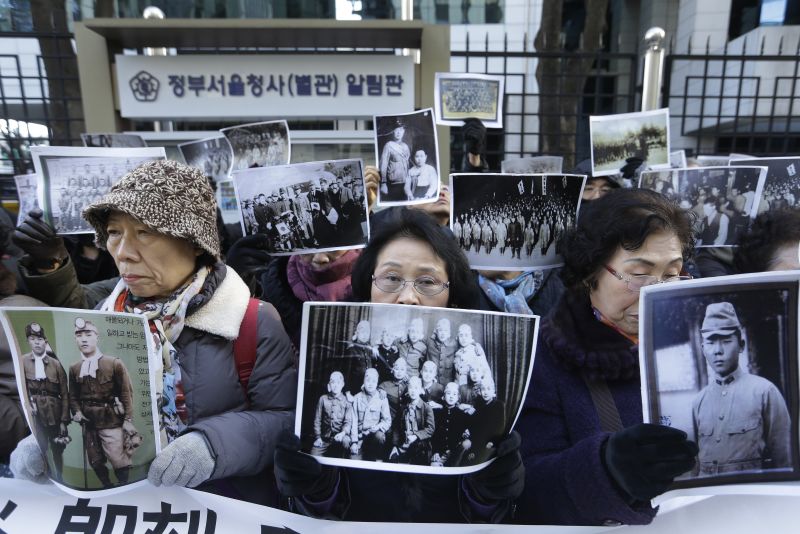The issue of so-called comfort women — tens of thousands of Korean women and girls forced by the Japanese into sexual slavery before and during World War II — has long strained relations between South Korea and Japan. On Monday, the two countries announced a deal that South Korean Foreign Minister Yun Byung-se characterized as "final and irreversible," according to the AP. It could mark the beginning of improved relations between the two countries, both strong allies of the United States.
The deal included an apology from Japanese Prime Minister Shinzo Abe and a billion yen (roughly $8.3 million) fund to support the 46 surviving Korean women.
The fact that monetary compensation is coming from government coffers is potentially significant. In 1995, Japan established the Asian Women's Fund, funded through private donations, which gave monetary assistance to former sex slaves. The fact that Tokyo had resisted direct compensation to the victims prompted former comfort women and activists to criticize Japan for what they saw as an avoidance of official responsibility.
Some of the surviving women spoke out against the agreement. "The agreement does not reflect the views of former comfort women," said Lee Yong-soo, 88, during a news conference, according to the New York Times. "I will ignore it completely."
Improved ties between South Korea and Japan has been a U.S. priority. More than 75,000 U.S. troops are stationed in the two countries, and the Obama administration is looking to its two Asian allies to counter a rising China and a nuclear-armed North Korea.
9(MDAxOTAwOTE4MDEyMTkxMDAzNjczZDljZA004))
